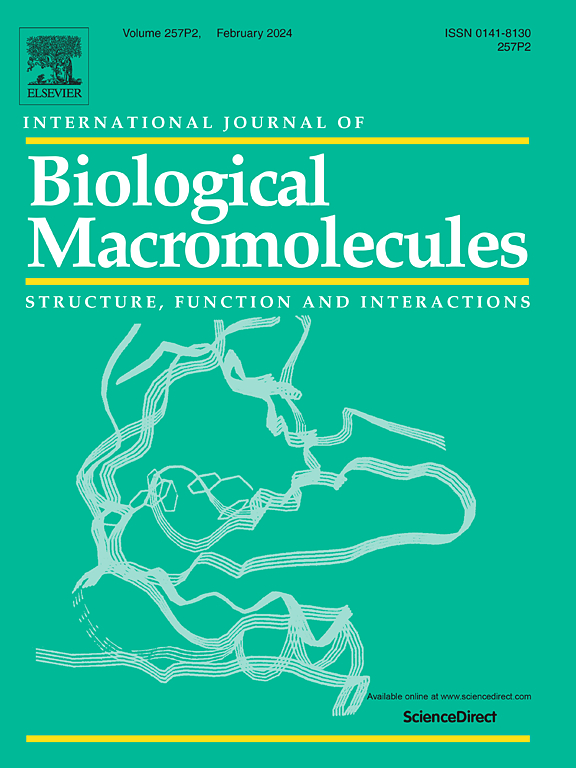利用酶/碱协同机制提取优质毛竹纤维。
IF 7.7
1区 化学
Q1 BIOCHEMISTRY & MOLECULAR BIOLOGY
International Journal of Biological Macromolecules
Pub Date : 2024-11-02
DOI:10.1016/j.ijbiomac.2024.137230
引用次数: 0
摘要
作为一种新兴的非木材资源,毛竹因其生长周期短、全纤维素含量高而受到广泛关注。然而,毛竹的内部结构比木材更为紧密,导致制浆过程中的化学消耗较高,从而大大降低了提取纤维的质量。本文提出了一种包括酶和碱的创新制浆系统,以实现更高质量的毛竹纤维提取。受益于耐高温耐碱纤维素酶、木聚糖酶和漆酶的协同作用,再辅以碱性制浆,最终实现了毛竹纤维的充分保留和软化。与碱性制浆相比,用酶/碱系统处理的样品纤维长度相对增加了 7.19%,打浆效率提高了 31.26%。此外,经酶/碱系统处理的纸张的抗张指数和撕裂指数分别达到 50.17 N-m-g-1 和 9.12 mN-m2-g-1,比碱性制浆分别高出 22.52 % 和 20.53 %。这项工作为低能耗和低碱耗生产高性能毛竹纤维和纸张提供了新的见解。本文章由计算机程序翻译,如有差异,请以英文原文为准。
Extraction of high-quality moso bamboo fibers by enzyme/alkali synergistic mechanism
As an emerging non-wood resource, moso bamboo has attracted extensive attention because of its short growth cycle and high holocellulose content. However, the internal structure of moso bamboo is more compact than that of wood, leading to higher chemical consumption during the pulping process, which greatly reduces the quality of the extracted fibers. Herein, an innovative pulping system including enzymes and alkali is proposed to achieve higher-quality extraction of moso bamboo fibers. Benefiting from the synergistic effects of high-temperature and alkali-resistant cellulase, xylanase, and laccase, supplemented with alkaline pulping, adequate retention and softening of moso bamboo fibers were ultimately achieved. The sample treated with an enzyme/alkali system resulted in a relative increase in fiber length of 7.19 % and a 31.26 % increase in beating efficiency over alkaline pulping. In addition, the tensile index and tearing index of the paper treated with the enzyme/alkali system reached 50.17 N·m·g−1 and 9.12 mN·m2·g−1, which were 22.52 % and 20.53 % higher than those of the alkaline pulping, respectively. This work provides new insights into the production of high-performance moso bamboo fibers and paper with low energy and alkali consumption.
求助全文
通过发布文献求助,成功后即可免费获取论文全文。
去求助
来源期刊
CiteScore
13.70
自引率
9.80%
发文量
2728
审稿时长
64 days
期刊介绍:
The International Journal of Biological Macromolecules is a well-established international journal dedicated to research on the chemical and biological aspects of natural macromolecules. Focusing on proteins, macromolecular carbohydrates, glycoproteins, proteoglycans, lignins, biological poly-acids, and nucleic acids, the journal presents the latest findings in molecular structure, properties, biological activities, interactions, modifications, and functional properties. Papers must offer new and novel insights, encompassing related model systems, structural conformational studies, theoretical developments, and analytical techniques. Each paper is required to primarily focus on at least one named biological macromolecule, reflected in the title, abstract, and text.

 求助内容:
求助内容: 应助结果提醒方式:
应助结果提醒方式:


